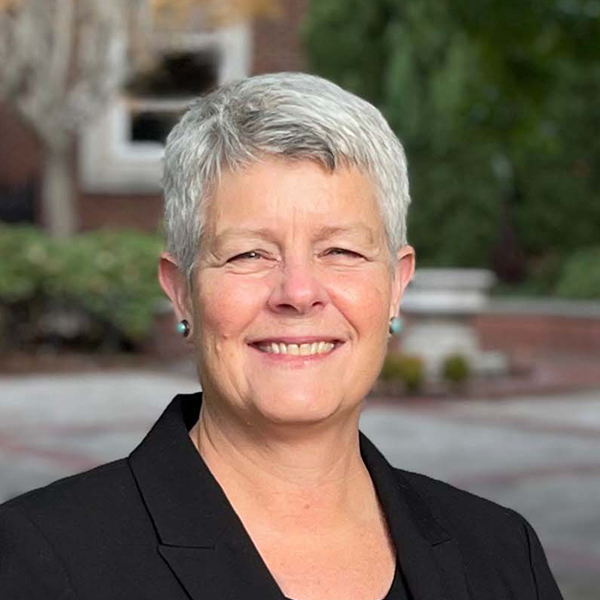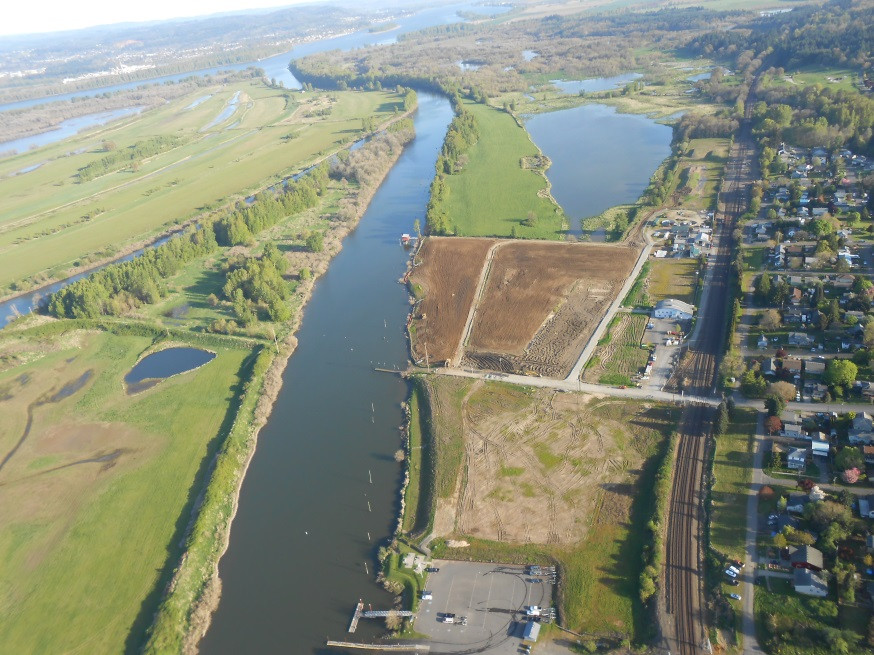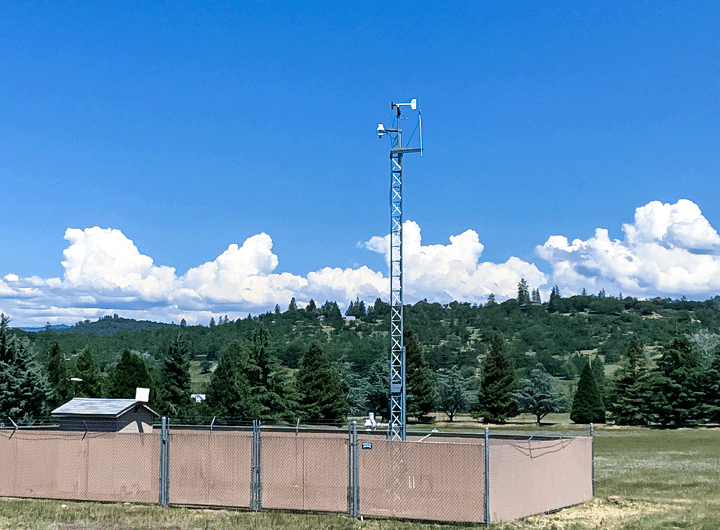Funding
State and Federal Grant Funding Opportunities February 2025

Navigating Federal Funding Uncertainty: As the new administration continues to evaluate federal funding programs, there may be uncertainty about the ongoing availability of these grants. We have included only open funding sources for which funds have been allocated. As always, we recommend that you confirm status and eligibility requirements at the program website.
Federal Funding Opportunities February 2025
Federal Transportation Funding to Improve Resilience to Natural Hazards and Climate Change
Federal Highway Administration program aims to improve highway, public transportation, port, and intercity rail infrastructure.
The Federal Highway Administration has made available $1.4 billion over five years to help public agencies protect transportation infrastructure from natural hazards, including climate change, sea level rise, flooding, extreme weather events, and other natural disasters. Up to $576 million will be available for applicants that submit requests by February 2025; a second round of funding will provide up to $300 million for applicants that submit requests between October 2025 and February 2026. State and local governments, public transportation authorities, ports, tribes, metropolitan planning organizations, multijurisdictional entities, and others are eligible to apply. Funding may be used for projects such as planning, improving infrastructure resilience, developing evacuation routes, supporting community resilience, and protecting at-risk coastal infrastructure. Eligible infrastructure includes highway, public transportation, port, and intercity rail systems. A 20 percent match is required. Applications are due by February 24, 2025. To learn more, visit the Promoting Resilient Operations for Transformative, Efficient, and Cost- Saving Transportation (PROTECT) page.
Application Period Open for Up to $750,000 for Habitat Improvement on Private Lands
USFWS program provides technical and financial assistance to landowners.
The U.S. Fish and Wildlife Service is providing a total of $15 million in technical and financial assistance for landowners to conserve and improve wildlife habitat. Tribes, local governments, special district governments, public housing authorities, for-profit and nonprofit entities that own private lands are eligible to apply for this program. Projects must be focused on restoring and protecting habitats for protected fish and wildlife species, must support habitat connectivity, and must aim to make ecosystems healthier and more resilient. Staff of the Partners for Fish and Wildlife Program will be substantially involved in the proposed project, including budget management, project monitoring, approving changes, organizing structure, and tracking performance. Priority goes to projects judged likely to provide habitat for rare or threatened and endangered species. Improvements made from this program must have a minimum lifespan of 10 years. Participating landowners do not forfeit any property rights and are not required to allow public access. No match is required. Applications must be submitted before May 30, 2025. For more information, visit the Partners for Fish and Wildlife page or search for funding opportunity number F25AS00165 at grants.gov.
$6 Million Available for Coastal System Conservation
USFWS program provides technical and financial assistance to conserve priority coastal systems.
The U.S. Fish and Wildlife Service is providing a total of $6 million to provide technical and financial assistance to applicants to restore and protect fish and wildlife habitats on public and private lands. Awards of up to $500,000 per applicant are anticipated. Tribes, local governments, special district governments, housing authorities, and for-profit and nonprofit entities are eligible to apply. The goal of the program is to preserve the conservation status of species of concern. Projects must be focused on restoring and protecting habitats for protected fish and wildlife species, must support habitat connectivity, and must aim to make ecosystems healthier and more resilient. Projects will be developed collaboratively with program staff. Applicants are required to contact a local program office before developing or submitting an application. No match is required. Applications must be submitted before May 30, 2025. For more information, visit the Coastal Programs page or search for funding opportunity number F25AS00188 at grants.gov.
$27 Million Available for Transportation Projects in Rural or Tribal Communities
USDOT program will provide financial, technical, and legal assistance to qualified applicants.
The U.S. Department of Transportation is providing a total of $27 million for planning and design-phase activities for developing transportation projects in rural or tribal communities. $10 million of the total funding is dedicated to projects performed by tribal governments. Awards are expected to range between $200,000 and $750,000 for a single project and $500,000 and $2.25 million for communities submitting a joint application. Tribes and rural local governments or political subdivisions are eligible to apply. Eligible project types include conducting feasibility studies and environmental review and permitting, public engagement, property development, public benefit studies, and cost estimating. No match is required. The application period opens March 4 and the due date is April 3, 2025; however, applications are considered and funded on a first-come, first-served basis, so applicants are encouraged to apply early. For more information, visit the Rural and Tribal Assistance Pilot Program page.
$20 Million Available to Advance Coastal Habitat and Climate Resilience
NOAA program supports priorities of tribes and underserved communities.
The U.S. National Oceanic and Atmospheric Administration is providing a total of $20 million for coastal habitat restoration activities. NOAA will accept proposals of between $75,000 and $2 million. Projects will receive priority consideration that focus on capacity-building, meaningful engagement, and restoration activities that enhance resilience for tribes, tribal entities, and underserved communities and also lead to habitat restoration in coastal, estuarine, and marine areas. Tribes, local governments, nonprofit and for-profit organizations, and others are eligible to apply; applications must demonstrate their connection to, or status as, a tribe, tribal entity, or underserved community. Eligible project activities may include design, permitting, pre- and post-project monitoring. No match is required. Applications are due May 12, 2025. For more information, visit the Coastal Habitat Restoration and Resilience Grants for Tribes and Underserved Communities page.
$750 Million Available to Prepare for Natural Disasters
FEMA program supports community resilience and aims to reduce the effects of natural disasters.
The Federal Emergency Management Agency is providing a total of $750 million for pre-disaster natural hazard mitigation programs to reduce risks to communities. The goals of the program are to increase awareness of natural hazard risks, support identification of risks, foster resilience to multiple hazards, and provide equitable outcomes for disadvantaged communities. Tribes and local governments are eligible to apply. Eligible projects may include capability and capacity-building activities, hazard mitigation projects to increase resilience and public safety, and financial assistance to reimburse applicants for expenses related to a specific hazard mitigation measure or project. A 25 percent match is required for most projects; projects in Community Disaster Resilience Zones or economically disadvantaged rural communities may provide a 10 percent match. Applications are due April 18, 2025. For more information, visit the Building Resilient Infrastructure and Communities program page.
$450 Million Available for Port Infrastructure
USDOT program supports the safety, efficiency, or reliability of the movement of goods into, out of, around, or within a port.
The U.S. Department of Transportation Maritime Administration is providing a total of $450 million to improve port and related freight infrastructure. Eligible applicants include special purpose districts (such as ports) with a transportation function, tribes, local governments, and multijurisdictional entities. Eligible projects include those within port boundaries or projects directly related to port operations or an intermodal connection. Proposed projects may improve loading, unloading, or movement of goods; port operational improvements; environmental and emissions mitigation measures; or infrastructure to support seafood-related business. A 20 percent match is required for most projects; however, projects in rural areas or for small ports may be eligible for a reduced matching percentage. Applications are due April 30, 2025. For more information, visit the Port Infrastructure Development Program page.
Up to $200 Million Available to Help Tribes and At-Risk Communities Prepare for Wildfire
USFS program supports community resilience and aims to reduce the effects of natural disasters.
The U.S. Forest Service is providing a total of up to $200 million for assistance for tribes and at-risk communities to make plans and preparations for mitigating the risks of future wildfires. The program funds two primary project types: development of community wildfire protection plans and implementing projects in a community wildfire protection plan. Implementation projects may include planning; developing building codes or zoning ordinances; and exercises to test response planning, training, and partnership-building. Maximum grant amounts are $250,000 to develop, revise, or update a plan or $10,000 to implement a project. Communities that have high or very high wildfire hazard potential, include low-income residents, and/or have experienced a severe disaster will receive priority consideration. A 10 percent match is required for development of a plan; a 25 percent match is required for implementing a project. Tribes and underserved communities may request a waiver of the match requirements. Applications are due February 28, 2025. For more information, visit the Community Wildfire Defense Grant program page.
Up to $1.5 Million per Applicant to Support Solid Waste Management for Tribes and Inter-Tribal Consortia
USEPA program supports improved solid waste management, including recycling, for tribes.
The U.S. Environmental Protection Agency is providing between $100,000 and $1.5 million for planning and projects to improve management of solid waste, which may include reducing waste from sources, recycling, and developing innovative materials recovery and reuse methods, such as in agriculture and industry. Tribes and inter-tribal consortia are eligible to apply. Eligible projects include those that address post-consumer materials management, develop facilities for food and organics reuse and recovery, foster increased recycling and reuse, purchase equipment, provide consumer outreach and education, and more. The minimum individual award floor is $100,000, and the maximum individual award ceiling is $1,500,000. EPA anticipates providing at least one award per region for this opportunity. No match is required. Applications are due March 14, 2025. For more information, visit the Solid Waste Infrastructure for Recycling Grants for Tribes and Intertribal Consortia program page.
$43.5 Million to Support Development of Small-Scale Water Storage Facilities
BLM program supports the development of surface water and groundwater storage projects for qualified applicants.
The U.S. Bureau of Reclamation is providing up to $30 million per qualified applicant to develop small water storage facilities (that hold between 200 and 30,000 acre-feet). When implemented, projects must increase water supply reliability, improve operational flexibility, and enhance climate resiliency of water and related infrastructure. Eligible projects include planning, design, and construction. Other eligibility requirements are outlined in the notice of funding opportunity. Eligible applicants include tribes, local governments, special district governments, schools, nonprofit and for-profit organizations, and others. A match of 25 percent is required. To be considered for funding, prospective applicants must submit a feasibility study by April 30; applications are due July 15, 2025. For more information, visit the Small Storage Program page.
Washington State Funding Opportunities February 2025
$5 Million for Tribal Carbon Offset Projects in Washington
Program will fund planning for and implementation of projects on tribal lands.
The Washington State Department of Ecology is providing up to $5 million for federally recognized tribes in Washington state to design, assess the feasibility of, and implement projects (such as reforestation) that offset carbon, improve air quality, and reduce greenhouse gas emissions. Projects can include assessing costs and returns on investment, reducing financing costs, revising protocols to improve applicability, and intra- or intertribal meetings to evaluate feasibility. Projects must take place on federally recognized tribal lands in Washington. No match is required. The application period starts on February 25; applications are due by April 22, 2025. To learn more, visit the Tribal Carbon Offset Assistance Program page.
$21 Million for Tribal Climate Capacity Projects in Washington
Program will support tribal administration of Climate Commitment Act funds.
The Washington State Department of Ecology is providing up to $21 million to support federally recognized tribes in Washington state to use and administer funds from the Climate Commitment Act. The funding may be used for tribes to consult with agencies that allocate funding, perform energy siting studies, develop clean energy projects, apply for grant funding, or other related work. Projects must take place on federally recognized tribal lands in Washington. No match is required. The application period opens on February 25; applications are due by April 22, 2025. To learn more, visit the Tribal Climate Capacity Grants page.
$1.5 Million for Flood Control Projects in Washington
Program supports planning for projects to mitigate local flood hazards.
The Washington State Department of Ecology is providing $1.5 million to communities to develop comprehensive floodplain management plans and put actions and projects in place to mitigate local flood hazards. Eligible applicants include federally recognized tribes, local governments, special purpose districts, and conservation districts, with a ceiling of $500,000 in awards per county. Eligible projects include writing or updating a comprehensive flood hazard management plan; feasibility, mapping, and technical studies; permitting, outreach and public communications; matching federal funding; and emergency flood response and recovery. A 25 percent match for planning projects and a 20 percent match for emergency flood response projects is required. Prospective applicants must fill out a Notice of Intent to Apply form prior to applying. Applications are due by June 30, 2025. To learn more, visit the Flood Control Assistance Account program page.
$700,000 in Remedial Action Cleanup Grants Available in Washington
Program supports independent cleanup of contaminated sites for redevelopment.
The Washington State Department of Ecology is providing between $300,000 and $450,000 to local governments to investigate and clean up contamination under the Voluntary Cleanup Program. Projects can include remedial investigations, feasibility studies, cleanup action plans, construction, or monitoring. Eligible applicants include local governments that have completed an independent cleanup through the Voluntary Cleanup Program, have received a No Further Action determination, and have completed a cultural resources consultation. Grant recipients must fund the portion of eligible costs that are not funded by Ecology. Applications are due by 5 p.m. on June 18, 2025. To learn more, visit the Independent Remedial Action Grants program page.
$1 Million Available For Salmon Recovery Planning in Puget Sound
Grants support salmon recovery planning in overburdened communities.
The Washington State Department of Commerce, in collaboration with the Puget Sound National Estuary Program and the Stormwater Strategic Initiative Lead, is providing approximately $1 million for salmon recovery planning. Eligible applicants include Puget Sound-based local governments fully or partially planning under the Growth Management Act and federally recognized tribal governments in the Puget Sound. Eligible activities include integrating salmon recovery plans into comprehensive plan updates; developing monitoring and adaptive management for critical areas; improving code enforcement; and creating programs for incentivization of low-impact development, promotion of infill development, and enhancement of forest hydrology; and coordination of public works funding for infrastructure to improve stormwater protection. Applications in communities with identified environmental health disparities according to the Environmental Health Disparity Map will be prioritized. Awards of up to $500,000 will be made. No cost-sharing or match is required. Applications are due by March 31, 2025. To learn more and read the guidelines, visit the Salmon Recovery Planning Grants page.
Oregon State Funding Opportunities February 2025
Funding Available to Improve Outdoor Parks in Oregon
Between $50,000 and $1 million per applicant available for outdoor recreation facilities.
The Oregon Local Government Grant Program supports communities that provide public outdoor park and recreation areas and facilities. Eligible applicants include local governments, parks and recreation service districts, ports, and metropolitan service districts. Eligible project types include land acquisition and planning and development for major rehabilitation projects consistent with the Statewide Comprehensive Outdoor Recreation Plan. Up to $50,000 is available for planning projects; up to $100,000 is available for small grants; and up to $1 million is available for large projects. Matching requirements vary by jurisdiction population and range from 50 to 20 percent. Applications for large grants are due April 1; for small grants, May 1; and for planning grants, May 15, 2025. To learn more, visit the Local Government Grant Program page.
Funding and Technical Assistance for Public Infrastructure for Water, Wastewater, and Stormwater in Oregon
Flexible loans and grants support design and construction to comply with regulations.
The Oregon Water/Wastewater Financing Program provides low-cost financing for the design and construction of public infrastructure needed to ensure compliance with water quality regulations for drinking water, wastewater, and stormwater. The maximum loan is $10,000,000 per project. Grants may be awarded to municipalities when loan financing is not feasible. Technical assistance and grants are available for municipalities with populations of less than 15,000 people. Eligible applicants vary by type of project and include tribes, local governments, and others. Eligible projects must resolve an existing or potential health hazard or noncompliance with federal or state standards. Typical projects funded by the program include planning and preliminary engineering studies; cost studies required for final design of a capital project; source development, treatment facilities, storage, and distribution projects for drinking water; treatment, disposal, and collection systems for wastewater; and conveyance, retention, and treatment for stormwater systems. Applications are accepted all year on a rolling basis. To learn more, visit the Water/Wastewater Financing Program page.
$5 Million Available for Small Oregon Cities to Improve Local Transportation Infrastructure
Program benefits non-highway infrastructure for cities with populations of less than 5,000.
The Oregon Department of Transportation provides funding to incorporated cities in Oregon with populations of less than 5,000 residents. Eligible projects include transportation infrastructure that is not part of the state or federal highway system and is inadequate for the capacity served or unsafe. ODOT staff will perform on-site evaluations for prospective projects and score applications on current condition and proposed improvements. Additional consideration will be given to forecasted population growth and how long ago a prospective applicant last received program funding. Funding from this program may be used as a match for state or federal grants. The application period opens March 3 and closes April 30, 2025. To learn more, visit the Small City Allotment Program page.
Contact
Contact Seth for help with grant application and strategy.





